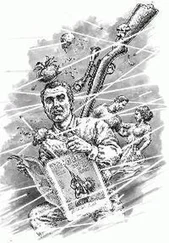Аврам Дэвидсон - Peregrine - primus
Здесь есть возможность читать онлайн «Аврам Дэвидсон - Peregrine - primus» весь текст электронной книги совершенно бесплатно (целиком полную версию без сокращений). В некоторых случаях можно слушать аудио, скачать через торрент в формате fb2 и присутствует краткое содержание. Год выпуска: 1971, ISBN: 1971, Издательство: New York : Walker, Жанр: sf_all, на английском языке. Описание произведения, (предисловие) а так же отзывы посетителей доступны на портале библиотеки ЛибКат.
- Название:Peregrine : primus
- Автор:
- Издательство:New York : Walker
- Жанр:
- Год:1971
- ISBN:0802755461
- Рейтинг книги:5 / 5. Голосов: 1
-
Избранное:Добавить в избранное
- Отзывы:
-
Ваша оценка:
- 100
- 1
- 2
- 3
- 4
- 5
Peregrine : primus: краткое содержание, описание и аннотация
Предлагаем к чтению аннотацию, описание, краткое содержание или предисловие (зависит от того, что написал сам автор книги «Peregrine : primus»). Если вы не нашли необходимую информацию о книге — напишите в комментариях, мы постараемся отыскать её.
Peregrine : primus — читать онлайн бесплатно полную книгу (весь текст) целиком
Ниже представлен текст книги, разбитый по страницам. Система сохранения места последней прочитанной страницы, позволяет с удобством читать онлайн бесплатно книгу «Peregrine : primus», без необходимости каждый раз заново искать на чём Вы остановились. Поставьте закладку, и сможете в любой момент перейти на страницу, на которой закончили чтение.
Интервал:
Закладка:
death which hangs automatically over all spies, but the sergeant in charge was insistent: Claud had, in effect, spied on Caesar, therefore unto Caesar he would go. And they had bound his arms and dragged him away.
Philoxena was under no illusions that, once he was within the city walls, there would be any talk of regrettable errors, followed by immediate release. And, as she had nothing else to offer in order to prevent his being taken within those city walls, she had offered herself. The soldiers had taken her, true—and roughly but then they started off once more, Claud still captive. Here was where Philoxena must have first become hysterical, and that was when she must have incurred the greater part of her wounds. At last, either from a blow severe enough to bring her to her senses, or from a latent realization that she herself could accomplish nothing, she lay where she had been flung. And, the soldiers being gone, had made her way to the riverside, halfstaggering and half-crawling—had seen the small barge—and, by ripping off what was left of her dress, and waving it, had attracted the attention of those aboard.
“Senator, can you do anything about this?” asked Peregrine. “You know the Caesar—”
Darlangius shook his head. “I do know the Caesar. I do indeed. I know him far too well to think that any intercession of mine could effect the release of anyone charged with peddling pistachios without a license—let alone someone suspected of a major threat to the Caesar’s throne. I am sorry. I am very sorry. You may as well recite the prayers for the dead for your friend. C. Petronius Niger has him now. I am indeed very sorry.” And in truth, he obviously was.
Fortunately at that moment Philoxena was allowing her face to be gently washed and a new gown to be arranged upon her; she did not hear. Eugenius made the Sign of the Snake, then began calculating what their chances might be of drifting past Chiringium on the far side of the river at night and without lights. Appledore sat upon the coamings and shed some thin tears, for he had grown fond of the younger man. And Augustus, though he did not leave his own precious seat upon his many precious bales, did at least express his deep regret over the incident, and sighed that a fellow-caesar’s policy should be so unproductive.
And the day, meanwhile, was dying, dying, dying.
Peregrine sat long in thought. Then he went and fetched the chart of the river. “Senator, your assistance, in this matter, would be—”
“Anything I can possibly offer in the way of information, my boy—”
Eugenius, too, was made of the council. He was vehemently opposed to what Peregrine had in mind, but by and by, and with many misgivings, he was persuaded to try it. “Yonder indeed lies the mouth of the old channel,” he said, pointing, “plugged as it is and has long been with all manner of sozzle and swamp. That great blasted oak marks its location, beyond which the rays of the setting sun are even now declining.”
Peregrine nodded. “And now, Doctor Appledore,” he said. “If you please —”
Once more, then, the strange harsh cry of the bird whose wings are spread wide upon the winds of the northern seas was heard. Faint, at first, and melancholy, as though the bird was idly skimming close to the waves, in search of something it knew not what, finding it not. . . then higher, and stronger, as if it had sighted what it sought, afar and off afar, and would reach it, and swiftly, too . . .
The breeze quickened in the darkling air. The breeze rose as the cry of the sea-bird rose, though no sea-bird was there seen, only Appledore, crouched upon the coamings, his cheeks beneath their colorless stubble all distended.
Peregrine felt that he was now not looking upon the faded landscape of a familiar-enough waterway inland in some temperate belt or clime. He seemed to see a wild waste of seas, faroff a region of savage rocks and snows. Fierce sprays filled the air. A single sea-bird rose upon the savage wind, rose higher, its cry rising.
—The sail cracked—once, twice, and a two times together, then the sail filled with wind, the boat surged forward. Eugenius, his drawn face intent, steered his boat directly towards the shore . . . towards what seemed a stretch no different from any other stretch of shore, slightly to the right of the rearing skeleton of a blasted oak. The mast groaned, the sail strained, the ropes creaked their protest. The women huddled together, fearfully. Augustus had seemingly lost interest, and was perhaps trying
(with the aid of a small pocket-abacus) to discover where, when, how much. Senator Darlangius P. G. had a little book rather suddenly in his right hand, from which he unhurriedly read Psalms of Intercession; with his left hand he was, perhaps absent-mindedly, caressing the ankle of Philoxena.
The waters made a hissing sound as the boat raced through them. Wild, wild, now, was the wind, and fierce and hungry and strong. The sailing-barge went into the land without a single pause—the land revealed, then, instantly, as not true land at all; but, though overgrown with grass and even thicketry, a waterlogged mass of mud and rotten tree-roots and sand and water and weeds and reeds—driven by the might of the wind, the Homoiousios cut through the sudd like a knife through crusted porridge—the river, now unrestrained by the tangle which had long obscured its old channel-mouth, and as well its waves driven by the winds, broke through with a surge of mighty waters.
And on its crest, through the deepening darkness, along the long-deserted as long-dry waterway, the boat and all aboard of her went rushing onward.
Went rushing onward through the darkness.
Behind, where it was already dark, three domes of broken wicker-work covered with tattered and filthy felt, and settled somewhat lopsidedly on rough wagonbeds, allowed their solid wheels to roll to a stop. The few women and children settled down for the night ... or for however long it might be: these calculations they left to their unlovely lords, and their unlovely lords were off and away, far and away, on the gallop-a-trot. Keep the boat in sight, had been their instructions, and keep the boat in sight they would and were doing, though to other eyes, perhaps, the boat and all things of the daily word were now lost to sight, the eyes as the ears of Hun Horde Number Seventeen were of other quality and keenness. Day or night, land or water, trot or swim, easy pace or hard, it was all one to any of them.
They placed their grubby great-toes a scruple more securely in the plaited-rope stirrups, and, as much at ease upon the boney backs of their sinewy little horses as any consul on his curule stool—in fact, considering the state of things in what was now the Central Roman Empire, more, much more—they floated and they followed on through the darkness. On and on and ever, ever on . . .
The arch-priest of the Church of San Stephanos had consulted his calendar and discovered that tonight was the Vigil of Saint Vespertilionid, a converted vampire of good family; and had, accordingly, with his deacon and his choir, set out to lead the small procession which was customary on such occasions. He had gone only a part of the way when he discovered that he was running low on incense. “Drat those pesky acolytes!” he exclaimed. “Well, there’s no help for it, set a boy to do a man’s job, if you want a thing done right do it yourself,” he muttered; and sundry other saws and apothegms. “Well, well, Septimus,” he said to his elderly deacon, “I’ll just trot back and fill the incense-boat again; meanwhile, steady as you go for three more blocks and then turn left until you come to the dockside, and so on, and I’ll meet up with you there, tisk!” and he scuttled back to his church as fast as he could. He was just as pleased, because the old supply of frankincense had come to an end, it was anyway (he considered) insufficiently smoky, and he was anxious to try out a new batch which he hoped would prove superior.
Читать дальшеИнтервал:
Закладка:
Похожие книги на «Peregrine : primus»
Представляем Вашему вниманию похожие книги на «Peregrine : primus» списком для выбора. Мы отобрали схожую по названию и смыслу литературу в надежде предоставить читателям больше вариантов отыскать новые, интересные, ещё непрочитанные произведения.
Обсуждение, отзывы о книге «Peregrine : primus» и просто собственные мнения читателей. Оставьте ваши комментарии, напишите, что Вы думаете о произведении, его смысле или главных героях. Укажите что конкретно понравилось, а что нет, и почему Вы так считаете.






